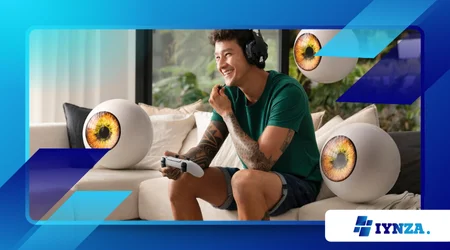Esports and Mental Health: Balancing Competition and Well-Being

The world of esports is more competitive than ever, with professional players and aspiring gamers dedicating countless hours to improving their skills. While esports offer exciting career opportunities, sponsorships, and global recognition, the mental health challenges that come with intense competition are often overlooked.
Anúncios
The pressure to perform, long hours of practice, and constant online scrutiny can take a toll on a player’s well-being. However, maintaining a balance between esports and mental health is important for long-term success and overall life satisfaction.
In this article, we’ll explore how professional and casual gamers can protect their mental health while excelling in esports.
The Impact of Esports on Mental Health
Esports demand dedication, strategic thinking, and endurance, often leading to stress and burnout. While gaming can enhance cognitive skills, teamwork, and reflexes, excessive gaming without proper management can have negative mental health effects, including:
1. High Levels of Stress and Anxiety
Competitive gaming creates intense pressure to win, leading to performance anxiety, fear of failure, and stress-related symptoms. Players often feel obligated to maintain their ranking, which can cause exhaustion and mental strain.
Read more: The Latest in Gaming Tech: From Consoles to Cloud Gaming
2. Irregular Sleep Patterns
Many gamers sacrifice sleep to train longer hours, disrupting their natural sleep cycles. Poor sleep quality can negatively impact reaction time, decision-making, and emotional well-being.
3. Social Isolation
While esports involve teamwork, players may neglect real-life social interactions, leading to loneliness and detachment from family and friends.
4. Risk of Burnout
Professional players often experience burnout due to excessive practice, high expectations, and tournament pressure. This can lead to motivation loss, frustration, and declining performance.
Understanding these risks is the first step toward creating a healthier gaming lifestyle that prioritizes mental well-being.
How to Maintain a Healthy Esports Lifestyle
1. Prioritize Mental Health and Breaks
Taking regular breaks between gaming sessions reduces eye strain, mental fatigue, and stress. Implementing a structured schedule with short breaks can improve focus and performance.
2. Maintain a Healthy Sleep Routine
Lack of sleep negatively affects cognitive abilities and reaction time. Gamers should aim for at least 7–9 hours of sleep per night to ensure peak performance.
3. Stay Physically Active
Esports players should engage in physical exercise to improve circulation, relieve stress, and counteract the sedentary nature of gaming. Activities like stretching, yoga, or cardio workouts help maintain both mental and physical health.
4. Establish Social Connections
Balancing online and offline interactions is essential. Gamers should stay connected with family and friends to maintain a support system beyond the gaming community.
5. Manage Stress Effectively
Techniques like meditation, deep breathing, and mindfulness can help players stay calm during high-pressure moments. Esports psychologists and mental health professionals can also provide valuable coping strategies.
These steps ensure that players can enjoy esports without sacrificing their mental well-being.
The Role of Esports Organizations in Mental Health Support
Many esports organizations are beginning to recognize the importance of mental health and player well-being. Some teams and gaming companies are implementing mental health programs, psychological coaching, and wellness initiatives to support their players.
1. Psychological Coaching and Therapy
Teams now employ sports psychologists to help players handle pressure, overcome anxiety, and develop mental resilience.
2. Mandatory Breaks and Training Schedules
Regulated training schedules prevent excessive gaming and encourage proper rest and recovery.
3. Encouraging a Healthy Work-Life Balance
Organizations are promoting flexibility, physical exercise, and mental health days to keep players in peak condition.
These efforts highlight how the industry is evolving to support players’ mental health, ensuring longevity in esports careers.
FAQ – Frequently Asked Questions
1. Can esports negatively affect mental health?
Yes, excessive gaming and intense competition can lead to stress, anxiety, sleep deprivation, and social isolation.
2. How can professional gamers avoid burnout?
Taking regular breaks, maintaining a balanced schedule, and seeking mental health support can prevent burnout.
3. Is physical exercise important for esports players?
Yes, regular exercise improves focus, reduces stress, and enhances overall well-being.
4. What are some relaxation techniques for esports players?
Meditation, deep breathing, and mindfulness exercises can help players manage stress.
5. How can esports teams support mental health?
Teams can offer psychological coaching, structured training schedules, and mental wellness programs to support players.
Conclusion
While esports provide incredible opportunities for competition and career growth, they also present mental health challenges that must be addressed. The pressure to perform, long training hours, and constant online scrutiny can lead to stress, burnout, and anxiety if not managed properly.
By prioritizing mental health strategies, such as structured breaks, proper sleep, physical activity, and stress management techniques, players can sustain their performance while maintaining well-being. Additionally, as esports organizations continue to recognize the importance of mental health, players are gaining more access to psychological support and balanced training schedules.
The future of esports depends not only on technical skills but also on the ability to manage pressure and maintain long-term mental well-being. As the industry grows, teams, sponsors, and gaming organizations must continue to foster a supportive environment that encourages healthy habits. By integrating mental health awareness into training programs and competition structures, esports can become more sustainable for professionals and enthusiasts alike.
Moreover, casual gamers and aspiring professionals should understand that self-care is a crucial part of success. A strong and resilient mind is just as valuable as quick reflexes and strategic thinking. Whether gaming for fun or competing at a high level, the key to longevity in esports lies in balancing competition with well-being, fostering strong social connections, and listening to one’s own mental and physical needs.
As gaming technology advances and esports continue to gain mainstream recognition, the industry must adapt to support the health of its players. Developing a culture where mental wellness is prioritized alongside skill development will ensure a healthier, more inclusive, and long-lasting competitive scene. With more education, open discussions, and proactive initiatives, esports can evolve into an environment where players thrive both in and out of the game.
By shifting the focus toward a healthier gaming culture, the esports community can ensure that players not only succeed in their careers but also enjoy a fulfilling and sustainable lifestyle in the long run. The ultimate goal should be to make esports not just about winning, but about enjoying the process, supporting fellow players, and creating a positive space for everyone involved.
